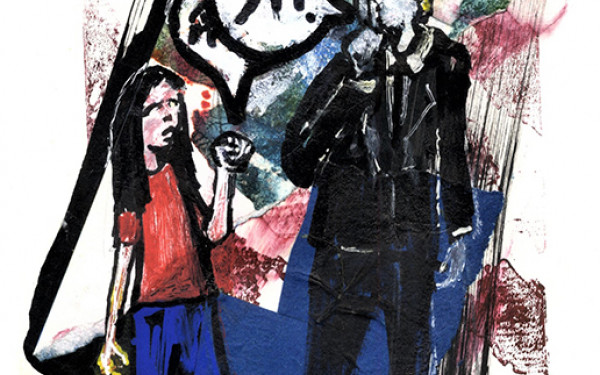Colloquial Racism in Academia
It was there 40 years ago and it still is here: the concealed burden of linguistic racism.
My father immigrated to Canada from Peru in the 1980s with only $40 to his name and the hope of a better life. He was lucky enough to meet someone through whom he got the opportunity of a scholarship.
His own dedication to working hard and the simple luck of being at the right place at the right time allowed him to pursue higher education here in Montreal.
Just like many immigrants, he met his partner—my mother—and together they built their own family. I vividly remember him telling us how much extra time he had to put into just understanding his lectures, as he was still just learning French.
He would bring a recorder, sit at the front of the classroom, and record the entire lecture—all while not understanding the professor’s teachings. He would then go back home and, with my mom’s help, listen to the recording as many times as needed to decipher the lecture’s content.
Now that I myself go to university as a white-presenting student speaking the language of my institution, I can’t help but think of my father’s experience with his own time at university. While he never fully vocalized all his challenges, the gaps in his stories were easy to fill.
Many of them are in part due to the lack of what we now know as “linguistic racism”: a form of racism particularly prevalent in academia.
A 2023 article states that not only does this form of racism favour “monolingual, native-speaker[s], and normative language practices,” but also acts as discrimination against “non-standard, often multilingual, speakers.” This phenomenon adds onto the multilayers of racism, while highlighting the challenges of working or studying in a language other than one’s own native tongue.
In an academic context, linguistic racism acts as a barrier for those who do not speak the language of their academic institution—whether it be French or English—and consequently makes the learning process much harder. I, myself being a native French speaker in an English institution, have heard my share of comments about the quality of my English or my accent, particularly at the beginning of my educational journey.
For anyone whose native tongue is neither English or French—depending on which side of Quebec’s Bill 96 language controversy one finds themselves in—there will be a certain prejudice against them when dealing with white professors and supervisors whose native language is that of the institution.
“This idea that something is ‘better’ or ‘worse’, that something is more ‘correct,’ it’s all based on a certain norm, a standard,” explains Dr Erin Carrie, a professor in linguistics at Manchester Metropolitan University, in an interview for the Journal of Language and Discrimination.
That standard is currently enforced because of the deeply rooted traditions of academia, where certain practices persist simply because they have always been conducted in that manner. Academia is built around research, knowledge and education.
According to Linda Tuhiwai Smith, research itself acts as “a set of very human activities that reproduce particular social relations of power.”
Without an influx of BIPOC faculty and students that also speak languages other than the one used within the academic institution, the presupposed correct way of speaking and writing will remain as it is. A 2019 survey showed that about 75 per cent of Canadian universities identify as white. A Nursing Inquiry article accurately states that “the lack of BIPOC scholars in academic institutions strategically reinforces the same dominant discourse on what is accepted as knowledge and critical thinking.”
While the diversity in universities has increased since my father’s time in school, there is still covert racism today. There is a richness to be embraced in having so many cultures and idioms intersecting at one place, providing new venues and methods for research from the diversity in background and perspectives. This should be the standard in academic institutions, instead of defaulting to Eurocentric linguistic racism and perpetuating the privilege of those speaking the language of the colonizer.




_600_375_s_c1.png)

